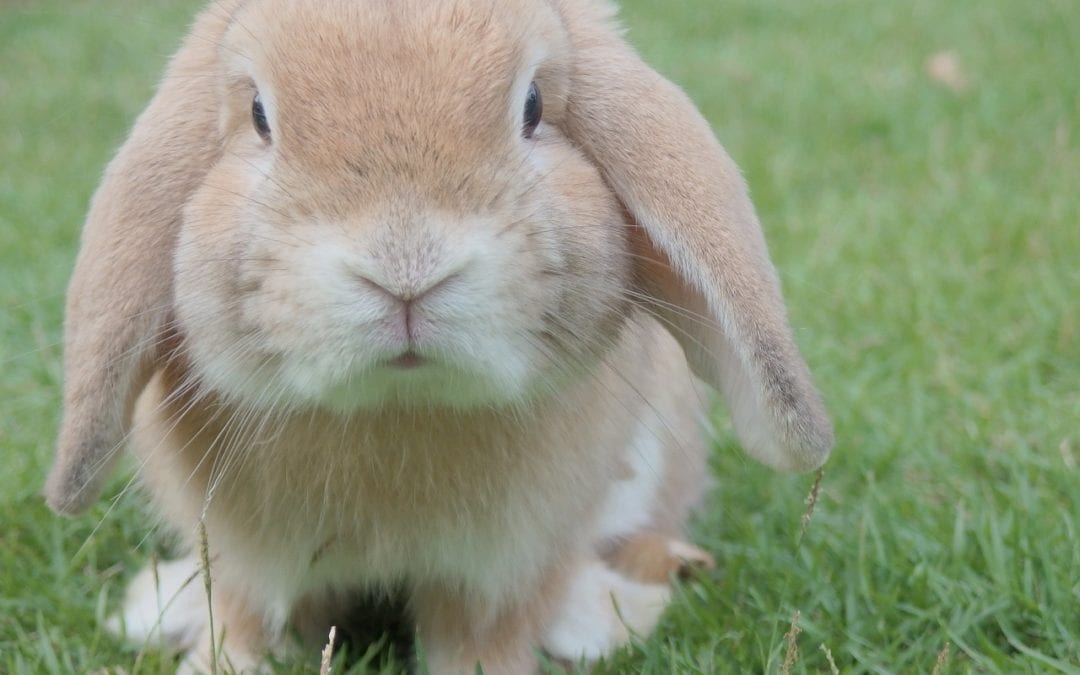With all the talk about proper dental care for dogs and cats, we tend to forget other species need proper oral health care too! Rabbits are no exception and require attentive care from their owners. Because rabbits are herbivores with teeth that grow continuously, special attention must be paid to their pearly whites. When teeth become overgrown, they can interfere with chewing, cause painful ulcers in the mouth, or block the tear ducts.
Some rabbits unfortunately are born with anatomy that predisposes them to developing dental problems. Others may have suffered some type of trauma resulting in changes to the way the teeth grow. There is no “cure” for these types of issues, and owners of these rabbits must be diligent about having the teeth trimmed or extracted as needed. One cause of dental issues that owners have control over is diet.
The introduction of pelleted feeds has left modern bunnies chewing a lot less than their ancestors. This concentrated source of easy-to-chew nutrition does not provide the volume or composition of food necessary to keep a rabbit’s teeth worn properly. Providing other sources of nutrition can be a huge help to improve your pet’s dental status.
A dental problem may not be outwardly evident, especially at first, but eventually many rabbits will show signs of a problem. You may see loss of appetite, development of picky eating habits, or notice your bunny dropping food. Affected rabbits may also have increased tear production, a nasal discharge, salivate excessively, or grind its teeth.
Your veterinarian may also identify dental disease when your rabbit comes in for its yearly checkup. Problems may be addressed by dietary changes, tooth trimming or grinding, extractions, or the systemic treatment of infection.
Keep your rabbit’s mouth healthy by feeding a healthy diet. Provide unlimited grass hay and a variety of fresh, leafy greens daily. Also, offer other chewing materials such as safe wood pieces or tree branches. Become familiar with your pet’s mouth and notify your veterinarian of any changes.
Most importantly, bring your rabbit to the veterinarian for a yearly exam including a full mouth examination so that problems can be addressed early. These simple actions can keep your bunny’s mouth in “hip-hop” shape!

